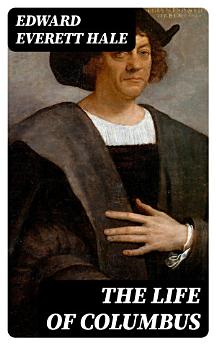The Life of Columbus: From His Own Letters and Journals and Other Documents of His Time
Edward Everett Hale
Sep 2022 · DigiCat
Ebook
209
Pages
family_home
Eligible
info
reportRatings and reviews aren’t verified Learn More
About this ebook
In "The Life of Columbus," Edward Everett Hale presents a meticulously crafted narrative that interweaves historical facts with rich storytelling, offering readers an engaging biography of Christopher Columbus. Written in Hale's distinctive style, the text fuses vivid descriptions with analytical depth, situating Columbus within the broader context of the Age of Discovery. The book not only chronicles Columbus's voyages and the challenges he faced but also delves into the cultural and political milieu of 15th-century Europe, exploring the motivations and consequences of exploration during this pivotal time. Hale, a prominent author, historian, and Unitarian minister, had a keen interest in American history and the moral implications of exploration. His background in literature and theology infused his perspective with a sense of ethical consideration, prompting him to portray Columbus not just as an explorer but as a complex figure whose legacy invites both admiration and scrutiny. Hale's belief in the potential for human progress likely influenced his portrayal of Columbus as a symbol of ambition and risk. This biography is highly recommended for readers seeking a nuanced understanding of Columbus's life and the era he navigated. Hale's blend of narrative flair and scholarly insight ensures that the book is both enlightening and enjoyable, making it an essential addition to the libraries of history enthusiasts and casual readers alike.
About the author
Edward Everett Hale (1822–1909) was a noted American author, historian, and Unitarian minister renowned for his writings and social reform work. Born on April 3, 1822, in Boston, Massachusetts, Hale came from a family with a rich history in American letters; his aunt, Harriet Beecher Stowe, penned the famous novel 'Uncle Tom's Cabin'. Hale's own literary career was marked by a commitment to uplifting narratives and a fascination with national identity, reflected in works such as 'The Man Without a Country' (1863), a patriotically themed short story with widespread acclaim. His scholarly pursuits led to the historical piece 'The Life of Columbus', among numerous other writings, where Hale not only explored the life of the famed explorer but also contemplated the broader consequences of European engagement with the New World. His prose often interweaved moral earnestness with an accessible narrative style, reflecting his belief in literature as a vehicle for social improvement and ethical instruction. Alongside his literary contributions, Hale was active in social reform and is credited with the inception of civic holidays such as Lend a Hand Society and the precursor to United States' Veterans Day. His impact on American culture and literature remained significant throughout his career, and his works continue to be studied for their historical and moral insights.
Rate this ebook
Tell us what you think.
Reading information
Smartphones and tablets
Install the Google Play Books app for Android and iPad/iPhone. It syncs automatically with your account and allows you to read online or offline wherever you are.
Laptops and computers
You can listen to audiobooks purchased on Google Play using your computer's web browser.
eReaders and other devices
To read on e-ink devices like Kobo eReaders, you'll need to download a file and transfer it to your device. Follow the detailed Help Center instructions to transfer the files to supported eReaders.







